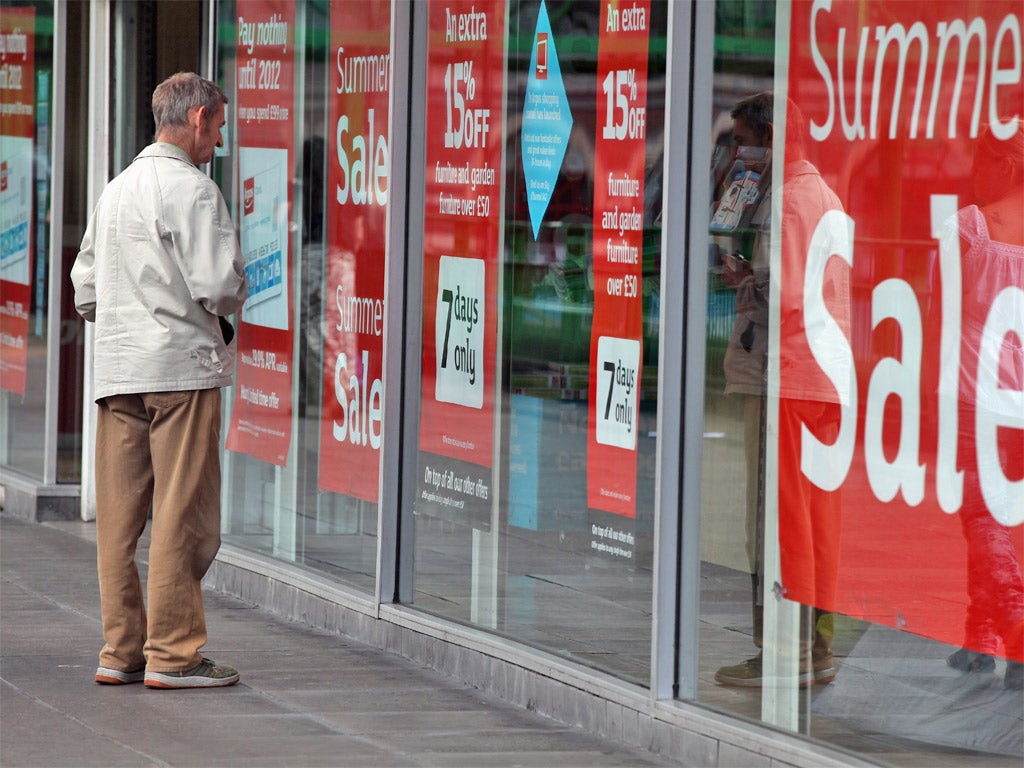Economic gloom prevails despite predictions of better days ahead
Poll finds people on lower incomes are losing hope – but those better off say things are looking up

Your support helps us to tell the story
From reproductive rights to climate change to Big Tech, The Independent is on the ground when the story is developing. Whether it's investigating the financials of Elon Musk's pro-Trump PAC or producing our latest documentary, 'The A Word', which shines a light on the American women fighting for reproductive rights, we know how important it is to parse out the facts from the messaging.
At such a critical moment in US history, we need reporters on the ground. Your donation allows us to keep sending journalists to speak to both sides of the story.
The Independent is trusted by Americans across the entire political spectrum. And unlike many other quality news outlets, we choose not to lock Americans out of our reporting and analysis with paywalls. We believe quality journalism should be available to everyone, paid for by those who can afford it.
Your support makes all the difference.More people are becoming gloomy about their own financial prospects despite some of the most optimistic economic statistics since the beginning of the year.
Polling for the Resolution Foundation think-tank suggests that spending cuts and the squeeze on living standards have made people on low and middle incomes more pessimistic about their own financial situation than they were last autumn and at the start of this year.
Official figures will show today whether Britain has slipped back into recession but most City analysts expect that the economy grew by about 0.1 per cent in the first three months of this year, narrowly avoiding a "double-dip" recession. It contracted by 0.3 per cent in the final quarter of last year. The new survey of 2,000 adults, carried out by Ipsos MORI, found that the number of people who expect their financial position to worsen over the next year rose from 15 per cent last October to 23 per cent in January and 27 per cent this month.
Low-income households, defined as those earning less than £12,000 a year, are the most pessimistic about their prospects – 36 per cent expect them to worsen in the next 12 months, up from 17 per cent last October and 25 per cent in January.
Middle-income groups, those earning between £12,000 and £30,000 a year, have also become more gloomy. The proportion of them saying their position will get worse rose from 16 per cent last October to 26 per cent in January and 30 per cent this month.
But households with an annual income of more than £30,000 are more optimistic than they were at the start of the year. The number of people who think their situation will get worse has dropped from 18 to 16 per cent since January. This is a potentially difficult finding for the Government as it tries to fend off criticism of what Labour has dubbed its "Budget for millionaires" because it cut the top rate of tax on incomes over £150,000 a year from 50 to 45 per cent.
According to Ipsos MORI, 18 per cent of people say they find it increasingly hard to afford essentials such as meeting food and energy bills.
Gavin Kelly, the foundation's chief executive, said the poll findings were especially worrying because they suggest consumers are still under great strain as inflation remains stubbornly high and earnings growth is on the floor.
"Many low to middle-income households are already struggling just to stay afloat and will see yet another fall in their real wages this year alongside big cuts to tax credits," he said. "Over recent weeks there has been very mixed news – unemployment and retail sales have provided some hope, but the underlying picture is still bleak with a big rise in part-time and insecure self-employment, real wages falling and the worst of the cuts still to come."
He said soaring energy prices were hitting families on low and modest incomes because they spend a higher proportion of their earnings on essentials.
Join our commenting forum
Join thought-provoking conversations, follow other Independent readers and see their replies
Comments